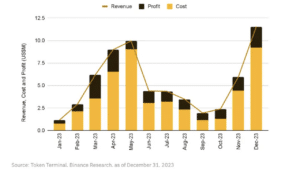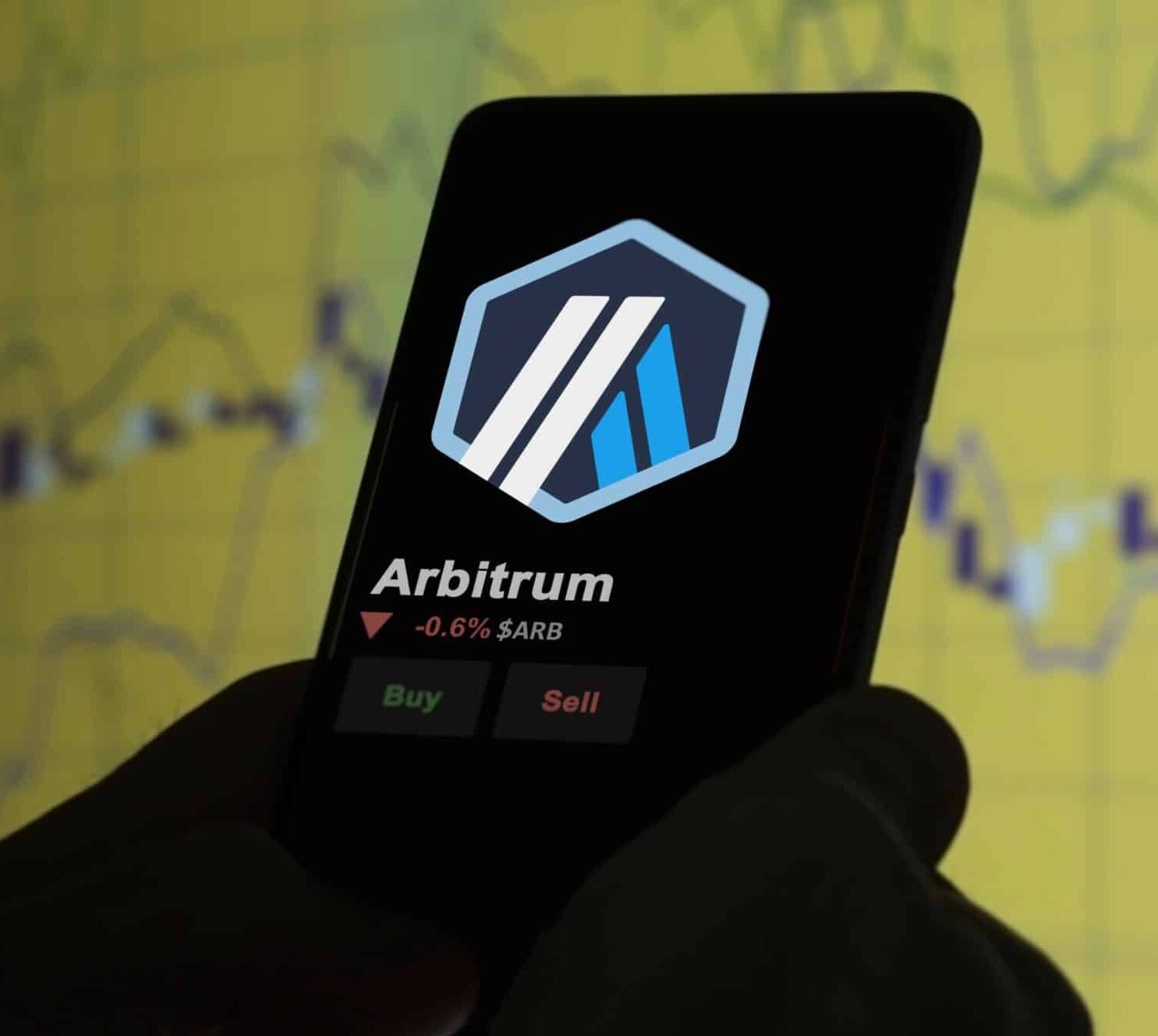Arbitrum, the leading scaling solution for Ethereum, has captured roughly half of the entire rollup market share, according to blockchain analytics firm Nansen in a research report published Thursday.
Rollups are designed to help users transact faster and more inexpensively on the Ethereum network by moving computation off-chain and batching a collection of transactions before posting them to Ethereum’s base layer.
With $11.47 billion in locked value in its smart contracts, Arbitrum has captured about 48% of the entire rollup market share.
Arbitrum has “robust fundamentals,” Nansen research analyst Sandra Leow said in the research report. Notably, growth in daily transactions and monthly revenue has been impressive. Despite Ethereum surpassing it in daily transactions, Arbitrum averages 600,000 to 900,000 transactions per day, outpacing its rollup rival, Optimism, the second largest rollup with over $5.5 billion in locked value, per L2Beat.
Arbitrum’s revenue trajectory has been consistently upward since Sept. 2023, Leow noted. Last month, Arbitrum generated revenue of $11.9 million, its highest monthly earnings to date.

Concerns About Upcoming Token Unlock
The outlook is not all sunny for Arbitrum, however. Some crypto investors see risks in Arbitrum due to its upcoming token unlocks which will free up a massive amount of ARB.
Token unlocks refer to the release of frozen or locked cryptocurrencies. Ideally, token unlocks are gradual to prevent large-scale sell-offs by early investors. But Arbitrum is about to have a “heavy unlock,” explained Charles Storry, co-founder of crypto index platform Phuture, to Unchained on Telegram.
Right now, Arbitrum has a very small circulating supply of 1.275 billion ARB, only 12.75% of its total token supply. However, in about two months, 1.11 billion ARB — 87% of its circulating supply — will be unlocked.
After the March unlock, which is valued at over $2 billion, Arbitrum will begin monthly unlocks for the next three years, according to its governance documents.
Positive Catalysts
Several catalysts may increase positive sentiment among the Arbitrum community, however, according to Nansen’s Leow. The first is a recently passed proposal about the implementation of a staking mechanism, which would let token holders lock their ARB in exchange for rewards.
The second is Arbitrum’s short-term incentive program (STIP), which allows protocols such as GMX and Camelot to apply and receive grants as a means to boost on-chain activity.
The third is EIP-4844, which “is a big step forward in Ethereum’s Rollup-centric roadmap,” because it reduces the cost of rollups by 10-20x, wrote Leow. While investors have expressed bearish remarks about ARB’s price, “generally people are more closely monitoring EIP-4844 (blobs) in the Ethereum Dencun upgrade,” Carlos Mercado, a data scientist at blockchain analytics firm Flipside Crypto, said to Unchained over Telegram.
Read More: Ethereum’s Dencun Upgrade Live on Testnet After Bug Delays Finalization
The last catalyst revolves around Arbitrum Orbit, which allows developers to create new chains atop Arbitrum’s layer 2 rollup. According to Leow, the main benefit of Arbitrum Orbit is that it allows the use of tokens native to the chains atop Arbitrum as compensation for gas, which would “limit sell pressure of the said token.”
“Despite investor concerns over imminent token unlocks and the ARB token’s underperformance, ARB is strategically positioned as a frontrunner in the optimistic rollup sector, commanding nearly half of the total market share in rollups,” Leow said.
ARB, the governance token for Arbitrum, is currently trading at $1.91, down roughly 14% in the past seven days, data from Coingecko shows.
Disclosure: Arbitrum is a sponsor for Unchained.



